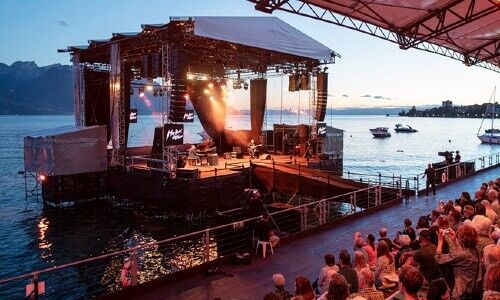UBS sponsored Montreux's fabled jazz festival for more than 30 years, only to be replaced by Julius Baer this year.
Montreux, home to the world’s second-largest jazz festival after Montreal, won Julius Baer as its new primary sponsor, the Swiss private bank said in a statement on Tuesday. It is the stuff of legend: icons including Nina Simone, Miles Davis, Aretha Franklin, Ella Fitzgerald, Marvin Gaye, Prince, Leonard Cohen, David Bowie, Elton John, and Stevie Wonder have performed at Montreux.
A 1971 fire in Montreux's casino while Frank Zappa was performing inspired Deep Purple's 1972 hit «Smoke on the Water». Swiss music promoter Claude Nobs founded the festival in 1967, together with musicians René Langel and Géo Voumard.
Star-Studded Sponsoring
The fabled 55-year-old festival is exactly the type of star-studded event that works well for companies like UBS to sponsor: the city of roughly 24,000 boasts several luxury hotels.
Situated on Lake Geneva, it is a short hop to the terraced vineyards of Lavaux, an UNESCO heritage-protected wine-making region. UBS has sponsored it for the past 30 years – even after the death of Nobs eight years ago.
Withdrawing As Chief Backer
The Zurich-based wealth apparently elected this year not to renew. «Both UBS and the jazz festival have made countless memories through our long partnership. The company is however continually evaluating its engagements in Switzerland and together with the festival decided not to renew its contract as chief sponsor,» the bank said.
UBS said it wants to stay attached to Montreux, and will seek a different form of partnership with the festival.
Julius Baer's Musical Talent
Julius Baer's interest is no coincidence: CEO Philipp Rickenbacher is a music buff who plays double bass and Europe boss Yves Robert-Charrue, took a break from this then-employer Credit Suisse from 2004 to 2005 to tour with his band (he plays guitar).
UBS' disinterest appears to be due to Montreux's attempt to internationalize and seek new markets – including China and Brazil. The Swiss bank's domestic arm, which was behind the sponsoring contract, will have had little incentive to support this.


































